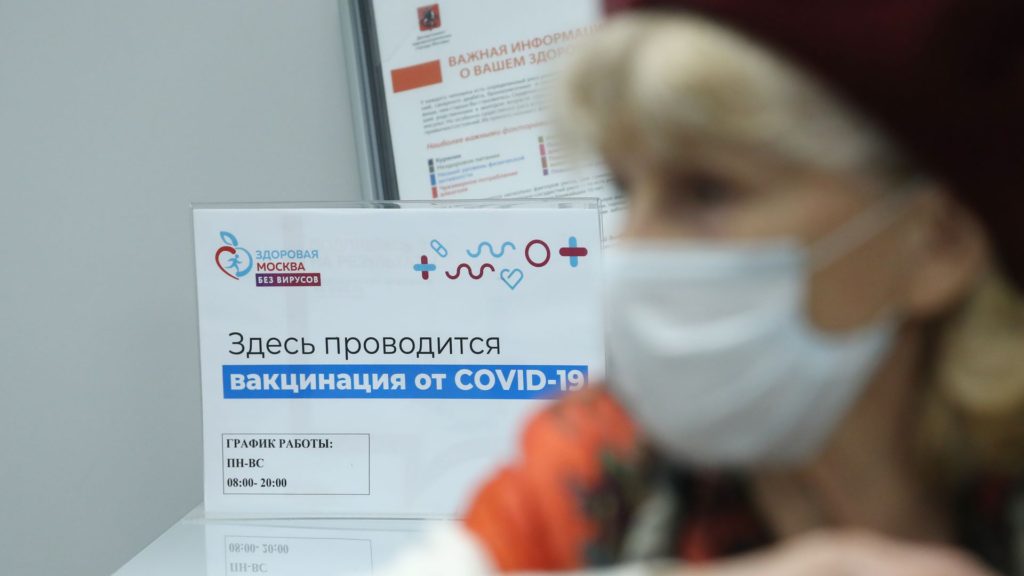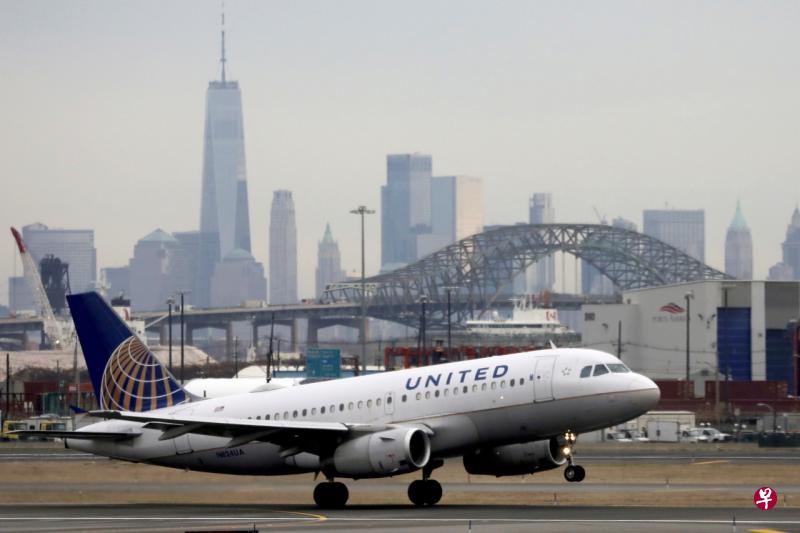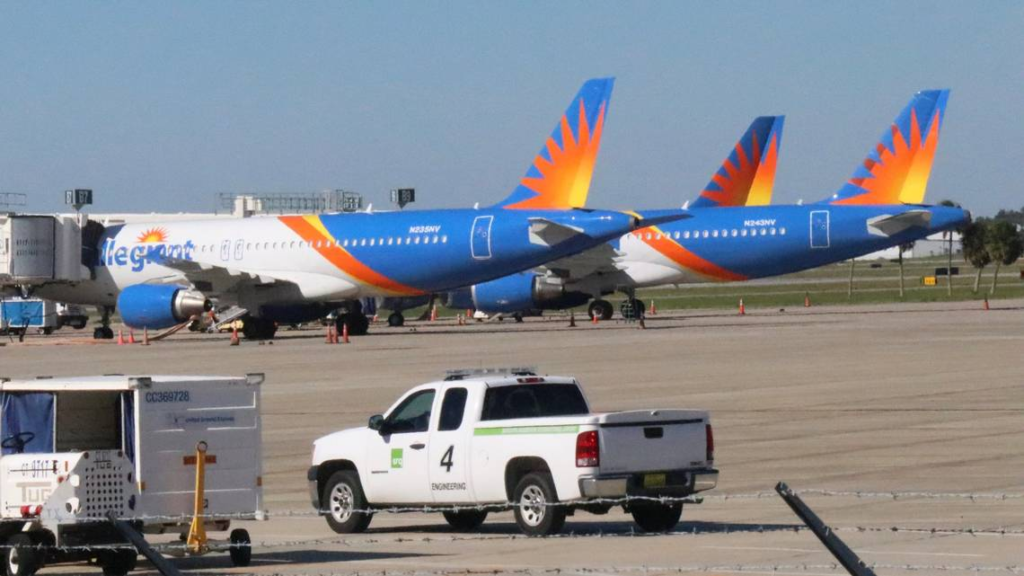
Tel: 551-580-4856 | Email: F.WINNIE.S@GMAIL.COM
最新!CDC: 未来或打满三剂才算“完整接种” 中领馆更新回国规定:承认8种疫苗
来源: 华人生活网
10/23/2021
美国时间10月22日,美国疾病控制与预防中心(CDC)主任瓦伦斯基在记者会上说,由于当局已核准新冠疫苗加强针,未来对“完整接种”的定义或将发生改变。
目前,CDC美国居民“完整接种”的定义如下:“完全接种者是那些在FDA授权的COVID-19疫苗2系针完成后≥14天的人。”
22日,瓦伦斯基被媒体问到,有资格接种加强针的人,是否该去接种,才能保住“已完整接种”的身份,她回答,“我们还没修改‘完整接种’的定义”,现在不是所有美国人都有资格接种加强针,“未来可能有必要修改定义”。
他们说:“我们还没有改变‘全面接种’的定义。我们将继续研究这个问题。瓦伦斯基在新闻发布会上说:“未来我们可能需要更新‘完全接种’的定义。”
疫苗的作用大于风险
根据美国疾病控制与预防中心的数据,美国有超过1.89亿人接种了疫苗,约占总人口的57%。根据CDC的数据,未接种疫苗的成年人的住院率比接种疫苗的成年人高9到15倍。
尽管如此,随着时间的推移,面对变种病毒变种,疫苗对冠状病毒感染的有效性有所下降。
美国疾病控制与预防中心指出,疫苗对感染和住院的保护作用一直相当稳定。但随着时间的推移保护力也在减弱。因此,第三针的加强剂可以将疫苗的保护作用推到更高的水平。
CDC也在一些群体的对于第三针的风险和收益之间进行了权衡。65岁及以上的人获益最多,风险增加相对较少。
比如,以Moderna疫苗来说,对年轻人的保护作用仍然很强,但Moderna疫苗让人们患心脏炎症的风险更高,尤其是男性。
对于强生公司的疫苗,人们担心接种后会出现罕见的血凝块,这对年轻女性来说风险更高。但是从总体上来说,增强剂是有好处的,因为第二剂增加了保护。
回国注意:中国承认8种疫苗
与此同时,中国也对返回中国的人群是否需要接种疫苗有了明确的规定。目前没有赴华乘客必须接种疫苗的强制性要求,但为个人健康安全考虑,强烈建议所有符合条件的乘客接种疫苗。已接种疫苗乘客仍须进行“双检测”。
目前中国承认的8种疫苗,分别是:
国药(SinoPharm):需接种2剂
科兴(Sinovac):需接种2剂
可维克:需接种2剂
辉瑞(Pfizer):需接种2剂
莫德纳(Moderna):需接种2剂
强生(J&J):需接种1剂
康希诺(CanSinoBio):需接种1剂
智克威得:需接种3剂
另外,完成接种人员在接种疫苗所需全部剂次14天后才可进行“双检测”并申请健康码。完成接种后未满14天即进行“双检测”者,无论检测结果是否符合“双阴”要求,将无法获发绿色健康码。
另外,申请人原则上应完成疫苗接种全部剂次且14天后再进行“双检测”并申请健康码。
U.S. to ease Covid travel entry rules, require vaccinations for foreign visitors on Nov. 8
Foreign nationals from 33 countries will be allowed to enter the U.S. if they are vaccinated.
By Rebecca Shabad
10/15/2021
WASHINGTON — Travel restrictions that the U.S. imposed because of the Covid-19 pandemic will be partially lifted for nearly three dozen countries on Nov. 8, the Biden administration announced Friday.
White House assistant press secretary Kevin Munoz said in a tweet that the new policy will begin Nov. 8 and will require foreign national travelers from 33 countries to be fully vaccinated against Covid-19.
“This announcement and date applies to both international air travel and land travel. This policy is guided by public health, stringent, and consistent,” he said.
Foreign nationals from these countries were previously barred from entering the U.S. because of the virus.
The new policy will apply to a number of European nations — including the United Kingdom, France, Italy and Spain — as well as China and Iran, among others.
The administration announced the new policy in September and said that it would take effect in early November. Foreign nationals will be allowed to fly into the U.S. if they are fully vaccinated and able to show proof of vaccination prior to boarding a U.S.-bound flight, officials said at the time.
Officials said that the new system will put stricter requirements in place for travelers coming from outside those 33 countries.
The Centers for Disease Control and Prevention will also require airlines to collect personal information for each U.S.-bound traveler, including their phone number and email address, to help public health officials with contact tracing.
诚招美国和加拿大法律服务代理
因公司发展需要,诚招美国和加拿大法律服务代理。
要求:
懂英语、或西班牙语、或法语。
能合法工作有社安号或工号。
无需改行, 可以兼职。
大学生和有销售经验优先考虑。
自雇生意公司发美国报税1099,加拿大T4A
有意了解详情, 请扫码加微信, 非诚勿扰!

New U.S. travel rule excludes those vaccinated with Russia’s Sputnik V
By Ivana Saric
9/28/2021

New rules allowing fully vaccinated international travelers to enter the U.S. beginning in November will exclude those vaccinated by Russia’s Sputnik V vaccine, the Washington Post reports.
Why it matters: Sputnik V’s exclusion will mean millions of fully vaccinated individuals won’t be eligible to travel to the U.S., per the Post.
- It will also have a wider international impact, as Russia has plans to distribute its vaccine to around 70 countries.
State of play: According to the new rules, non-citizens entering the country must be inoculated with vaccines approved for emergency use by either the Food and Drug Administration or the World Health Organization, per the Post.
- These include the Pfizer-BioNTech, Moderna and Johnson & Johnson vaccines used widely in the U.S., as well as the AstraZeneca vaccine. It also includes the Sinopharm and Sinovac vaccines developed by China.
- The WHO has paused its review process of the Sputnik V vaccine over concerns about its manufacturing process, the Post notes.
The big picture: While addressing the UN General Assembly on Saturday, Russian Foreign Minister Sergei Lavrov called for the mutual recognition of vaccines by national oversight bodies.
- The Post notes that 300,000 Russians visited the U.S. in 2019, citing data from the U.S. Travel Association.
美国拟11月初开始放宽国际航班旅客入境限制
文 / 陈慧璋
9/20/2021

(早报讯)美国政府计划从11月初开始对“完全接种冠病疫苗”的外国旅客放宽入境限制。
新华社报道,白宫冠病疫情应对协调员津茨周一(20日)说,新规定适用于所有抵美国际航班,所有外国旅客入境美国时须出示“完全接种冠病疫苗”证明,以及出发前72小时内冠病检测阴性证明。
已完全接种冠病疫苗的国际旅客入境美国后不需要隔离。该规定将于11月初生效,以便相关机构和各航空公司做好准备。
津茨说,白宫将遵从美国疾病控制与预防中心(CDC)对“完全接种冠病疫苗”的具体解释,包括哪些疫苗符合规定要求。此外,美国疾控中心计划发布一项“追踪令”,要求航空公司收集并保留30天内抵美旅客的电话、电子邮箱等联系信息,以提醒旅客可能发生的接触感染风险。
津茨说,对未接种冠病疫苗的返美美国公民,美国政府将施行“更严格的检测要求”,包括须提供出发前一天内冠病检测阴性证明和已交纳返美后检测费用的证明。
美国政府周一继续把与加拿大、墨西哥的陆水两路跨境旅行限制令延长一个月至10月21日。这一陆水跨境限制令自2020年3月起实施,每月延长一次。今年8月9日起,加拿大允许接种过冠病疫苗的美国公民进入加拿大。
美国政府在去年冠病大流行初期开始实施国际旅行限制令,并不断扩大到新的国家和地区。此间媒体援引美国航空协会的数据说,截至今年8月底,国际旅行规模较疫情前缩水43%。美国旅游协会此前估计,如果美国的国际旅行限制令持续到今年年底,将使美国损失110万个就业岗位,并给美国经济造成约3250亿美元(约4394亿新元)的损失。
U.S. to lift international air travel restrictions on vaccinated adults in November
BY FRANCESCA CHAMBERS
9/20/2021

The United States will require all adult non-U.S. citizens to provide proof of vaccination and negative COVID-19 test results to enter the country, as part of a new set of rules for international air travel the White House announced on Monday.
White House coronavirus response coordinator Jeff Zients said Monday that the new rules, which will allow individuals from nations that are currently banned from entering the U.S., would go into effect starting in early November.
“In implementing additional strict safety protocols, we will protect Americans here at home, and enhance the safety of international travel,” Zients said.
Zients said the new rules would also authorize the collection of passenger data for the purposes of contact tracing.
The Biden administration had for months pushed off updating its international travel restrictions, citing a rise in coronavirus case counts over the summer, despite mounting opposition from travel industry groups, foreign government officials and legal residents of the U.S. who have not left the country for the last 18 months out of fear they would not be let back in.
Non-U.S. citizens who have been in the UK, Ireland, India and European nations in the Schengen area, including Italy, Spain, France, Denmark and Sweden, within the last 14 days are currently prohibited from traveling to the U.S., with some exceptions.
The travel restrictions that have been in place since last year have effectively kept most family members, tourists and business travelers from those nations from visiting the U.S., even as affected nations have opened their borders to Americans traveling abroad.
Pete Sibner, a Swedish national who lives in Lakewood Ranch, Fla., said two members of his extended family had died in the last several weeks, and neither he nor his wife, who is also from Sweden, were able to travel to their funerals.
“It’s been a rough couple of weeks,” he said, recounting how his wife had to say goodbye to her dying grandfather in a video call.
“She couldn’t be there when he passed away, and there was no way she could travel for the funeral, so she had to watch the funeral on FaceTime,” he added.
Sibner said a cousin he was close to also died recently, and the funeral is this week, but he will not be able to attend. “So that hurts.”
Individuals from other countries, including those with far lower vaccination rates than nations on the prohibition list, are currently able travel to the U.S., if they present proof of a negative coronavirus test prior to departure. Americans who travel abroad must also show negative COVID-19 test results to airlines in the 3-day period before their flight back to the U.S.
The human toll of the travel restrictions is one reason that a growing number of people inside and outside the U.S. have been pushing the Biden administration to introduce uniform standards. Travel and tourism groups have pushed hard for individuals from banned nations to travel to and from the country again to help boost the economy.
Caroline Beteta, president and CEO of the nonprofit marketing organization Visit California, said that pre-COVID, international visitors spent $28 billion in the state. Beteta said that international travel is California’s number one export and is a bigger boon for the state than agriculture.
“California experienced a 55% decline overall in travel, and we’re not expecting to reach that point again until 2024. And it’s largely because of the international market, as well as group meetings,” said Beteta, a member of the U.S. Department of Commerce Travel and Tourism Advisory Board, who wants the U.S. reopen to international travel.
The new rules for international travel will be similar to the systems other advanced nations now have in place.
Americans may travel to Italy if they show they are fully vaccinated, produce a negative COVID test taken 72 hours prior and submit a passenger locator form. France is currently open to fully vaccinated Americans, as well as minors accompanied by a vaccinated adult, who attest they have not been in contact with someone with COVID-19 and are not experiencing COVID-like symptoms.
Elliott Ferguson, president and CEO of the nonprofit marketing corporation Destination DC, said in an interview prior to Monday’s announcement that it is time for the U.S. to think along the same lines.
“If the concern is, you could still have COVID and have been vaccinated, then let’s by all means, consider some other alternatives such as testing before a person is able to get on a flight and testing negatively before they are able to physically fly to the United States,” Ferguson said.
For foreign nationals in the U.S. desperate to see their families, any new requirements that might accompany the lifting of travel restrictions are welcome.
“We’d undergo any kind of, whatever ordeal, it would take,” Sibner said. “My father, he hasn’t seen his grandchildren in two years now. My mother hasn’t seen her grandchildren in three years now, and they’re all back there, you know they would do anything, they would quarantine for two weeks if they had to.”
Sibner concluded, “We’d be willing to go through a lot.”
U.S. will limit some Chinese passenger air carriers to 40% capacity -order
By David Shepardson
8/18/2021
WASHINGTON (Reuters) -The U.S. Transportation Department on Wednesday said it will limit some flights from Chinese carriers to 40% passenger capacity for four weeks after the Chinese government imposed similar limits on four United Airlines flights.
China told United on Aug. 6 it was imposing sanctions after it alleged five passengers who traveled from San Francisco to Shanghai tested positive for COVID-19 on July 21.
The U.S. order said the department will limit over a four-week period each of four Chinese carriers to 40% capacity on a single China-U.S. flight.
United Airlines said it was “pleased to see this action by the (Transportation Department) in pursuit of fairness in this important market.”
The Chinese embassy in Washington did not immediately comment.
The U.S. government says China’s “circuit breaker” policy violates the nations’ air services agreement and “places undue culpability on carriers with respect to travelers that test positive for COVID-19 after their arrival in China.”
The department added carriers “have no means to independently verify positive test results alleged by Chinese authorities. Furthermore, there is no way to establish where or when a traveler may have contracted” the virus.
Chinese authorities gave United three options: cancel two San Francisco to Shanghai flights; operate two without passengers; or operate four flights with up to 40% of passenger capacity.
The limits were imposed on four Wednesday United San Francisco-Shanghai flights, beginning with an Aug. 11 flight.
The Biden administration said it will impose identical limits on four flights over four weeks – one each from Air China, China Eastern Airlines, China Southern Airlines Co and Xiamen Airlines.
The limits come as many Chinese students are headed to the United States for the start of fall classes.
Since the COVID-19 pandemic, China and the United States have sparred over air services.
In June 2020, the United States threatened to bar Chinese passenger flights after Beijing did not immediately agree to restore flights by U.S. airlines.
U.S. carriers voluntary halted flights to China after the coronavirus outbreak. Then-President Donald Trump on Jan. 31, 2020 barred nearly all non-U.S. citizens from traveling to the United States who had been in China within the last 14 days.
Those restrictions on Chinese travelers remain in place. The Biden administration in April eased restrictions on Chinese students traveling to U.S. schools effective Aug. 1.
A long-standing air agreement between China and the United States allows both countries to operate more than 100 weekly flights between the two nations but only a fraction of those are currently operating.
美国将从8月1日允许中国留学生赴美上课
4/28/2021
美国政府周二宣布,将在今年秋季放宽针对中国和其他国家的国际学生进入美国的旅行限制,这一调整可能会为一些在大流行期间招生人数下降的大学带来经济帮助。
据路透社报道,美国国务院声明,将从8月1日起将国家利益豁免扩大到来自世界各地的留学生和学者,此前美国国务院在3月为来自欧洲的留学生作出了上述调整。
在美学习的国际学生中中国学生人数最多。根据国际教育交流(IEE)的数据,2019-20学年约有35%的国际学生来自中国,几乎是排在第二位的印度留学生人数的两倍。
受疫情影响,美国禁止大多数在两周内去过中国、巴西、南非、伊朗和欧洲大部分地区的非美国公民入境美国。现在,所有来自这些国家的留学生都可以在今年秋季前往美国。
IEE在2020年11月发布的一份报告中写道,2019-20学年,37.2万名中国公民在美国的大学和学院就读。
根据美国国家学生信息交换所的数据,2020年秋季,美国大专院校入学总人数下降了2.5%,几乎是2019年秋季入学人数降幅的两倍。
2020年1月,时任美国总统特朗普首次宣布实施限制,禁止几乎所有去过中国的非美国公民入境美国。美国大专院校一直在敦促国务院在国际学生不得不做出入学决定前采取行动。
一位政府官员说,尽管宣布了这一消息,但官员们正在“密切关注疫情状况和演变轨迹”。
目前尚不清楚美国的大专院校或政府是否会承认中国学生接种的、没有获得美国食品药物管理局(FDA)批准的疫苗。部分美国学校要求学生在复课前完成疫苗接种。
另一个大问题是,首次申请学生签证的人员需要在美国大使馆和领事馆进行面签。美国国务院周二说,“正继续在遵循卫生部门科学指引的情况下,寻求处理更多签证申请的方法。”
美国教育理事会(ACE)援引一项研究称,2019-20学年,国际学生带来的总体经济影响从上一年的405亿美元(537.20亿新元)下降了18亿美元。
IEE报告称,2019学年,中国学生带给美国的经济影响约为159亿美元。
Travel.State.Gov
U.S. DEPARTMENT of STATE — BUREAU of CONSULAR AFFAIRS
National Interest Exceptions for Certain Travelers from China, Iran, Brazil, South Africa, Schengen Area, United Kingdom, and Ireland
Last Updated: April 26, 2021
On April 26, 2021, the Secretary of State made a national interest determination regarding categories of travelers eligible for exceptions under Presidential Proclamations (PPs) 9984, 9992, and 10143 related to the spread of COVID-19. As a result of this determination, together with national interest determinations already in place, travelers subject to these proclamations, due to their presence in China, Iran, Brazil, South Africa, the Schengen area, the United Kingdom, and Ireland, who are seeking to provide vital support for critical infrastructure; journalists; students and certain academics covered by exchange visitor programs, may now qualify for a National Interest Exception (NIE). Students and academics subject to these proclamations due to their presence in China, Iran, Brazil, or South Africa, may qualify for an NIE only if their academic program begins August 1, 2021 or later. Qualified travelers who are applying for or have valid visas or ESTA authorization may travel to the United States following the procedures below, even as PPs 9984, 9992, and 10143 remain in effect.
Students with valid F-1 and M-1 visas intending to begin or continue an academic program commencing August 1, 2021 or later do not need to contact an embassy or consulate to seek an individual NIE to travel. They may enter the United States no earlier than 30 days before the start of their academic studies. Students seeking to apply for new F-1 or M-1 visas should check the status of visa services at the nearest embassy or consulate; those applicants who are found to be otherwise qualified for an F-1 or M-1 visa will automatically be considered for an NIE to travel.
Travelers in categories described above who have a valid visa in the appropriate class or who have a valid ESTA authorization for travel under the Visa Waiver Program and seek to travel for purposes consistent with ESTA authorization, should contact the nearest U.S. embassy or consulate before traveling, if they believe they may qualify for a National Interest Exception. If a National Interest Exception is approved, they may travel on either a valid visa or ESTA authorization, as appropriate.
The Department of State also continues to grant NIEs for qualified travelers seeking to enter the United States for purposes related to humanitarian travel, public health response, and national security. These travelers and any others who believe their travel to be in the United States’ national interest should also review the website of the nearest U.S. embassy or consulate for instruction on how to contact them.
As with all NIEs for qualified travelers seeking to enter the United States under a Presidential Proclamation, if circumstances warrant, the Secretary of State may revise the national interest determination.
CDC Expands Negative COVID-19 Test Requirement to All Air Passengers Entering the United States
Media Statement
For Immediate Release: Tuesday, January 12, 2021
Contact: Media Relations
(404) 639-3286
The Centers for Disease Control and Prevention is expanding the requirement for a negative COVID-19 test to all air passengers entering the United States. Testing before and after travel is a critical layer to slow the introduction and spread of COVID-19. This strategy is consistent with the current phase of the pandemic and more efficiently protects the health of Americans.
Variants of the SARS-CoV-2 virus continue to emerge in countries around the world, and there is evidence of increased transmissibility of some of these variants. With the US already in surge status, the testing requirement for air passengers will help slow the spread of the virus as we work to vaccinate the American public.
Before departure to the United States, a required test, combined with the CDC recommendations to get tested again 3-5 days after arrival and stay home for 7 days post-travel, will help slow the spread of COVID-19 within US communities from travel-related infections. Pre-departure testing with results known and acted upon before travel begins will help identify infected travelers before they board airplanes.
Air passengers are required to get a viral test (a test for current infection) within the 3 days before their flight to the U.S. departs, and provide written documentation of their laboratory test result (paper or electronic copy) to the airline or provide documentation of having recovered from COVID-19. Airlines must confirm the negative test result for all passengers or documentation of recovery before they board. If a passenger does not provide documentation of a negative test or recovery, or chooses not to take a test, the airline must deny boarding to the passenger.
“Testing does not eliminate all risk,” says CDC Director Robert R. Redfield, MD, “but when combined with a period of staying at home and everyday precautions like wearing masks and social distancing, it can make travel safer, healthier, and more responsible by reducing spread on planes, in airports, and at destinations.”
This order was signed by the CDC Director on January 12, 2021 and will become effective on January 26, 2021.
Source: https://www.cdc.gov/media/releases/2021/s0112-negative-covid-19-air-passengers.html
Millions of Americans expected to travel for the holidays
The CDC is advising against it
2020/12/23
Despite a recent spike in COVID-19 cases, millions of people are expected to travel for the holidays.
AAA projects as many as 84.5 million Americans may travel from Wednesday, Dec. 23 through Jan. 3, a decline of at least 29% from 2019.
Hannah Buchner is in the Army and flew into the San Luis Obispo airport Wednesday from North Carolina. She noticed extra safety precautions in place.
“Everyone was wearing masks. Just a little more distancing, and there’s a lot more cleaning procedures on the plane,” she said.
While the Centers for Disease Control and Prevention (CDC) is urging Americans not to go anywhere for the holidays this year, for those who do, they recommend taking a COVID-19 test one to three days before travel and another three to five days after travel, in addition to reducing nonessential activities for seven days after.
Maureeni Stanislaus, who flew into San Luis Obispo Wednesday after visiting her mother, says she did get tested.
“I did a COVID test right before I left and I was lucky enough to get the first dose of the vaccine on Friday,” she said.
As for methods of travel, AAA says most Americans who do go somewhere in the next few weeks will do so by car, with road trips accounting for 96% of holiday travel.






